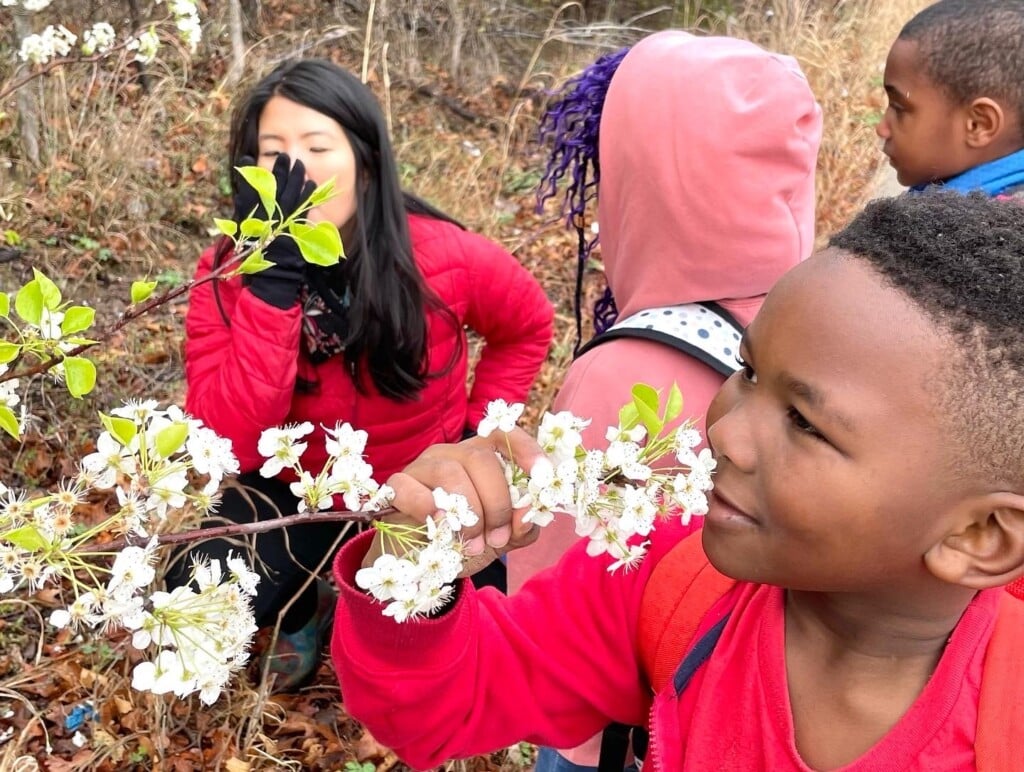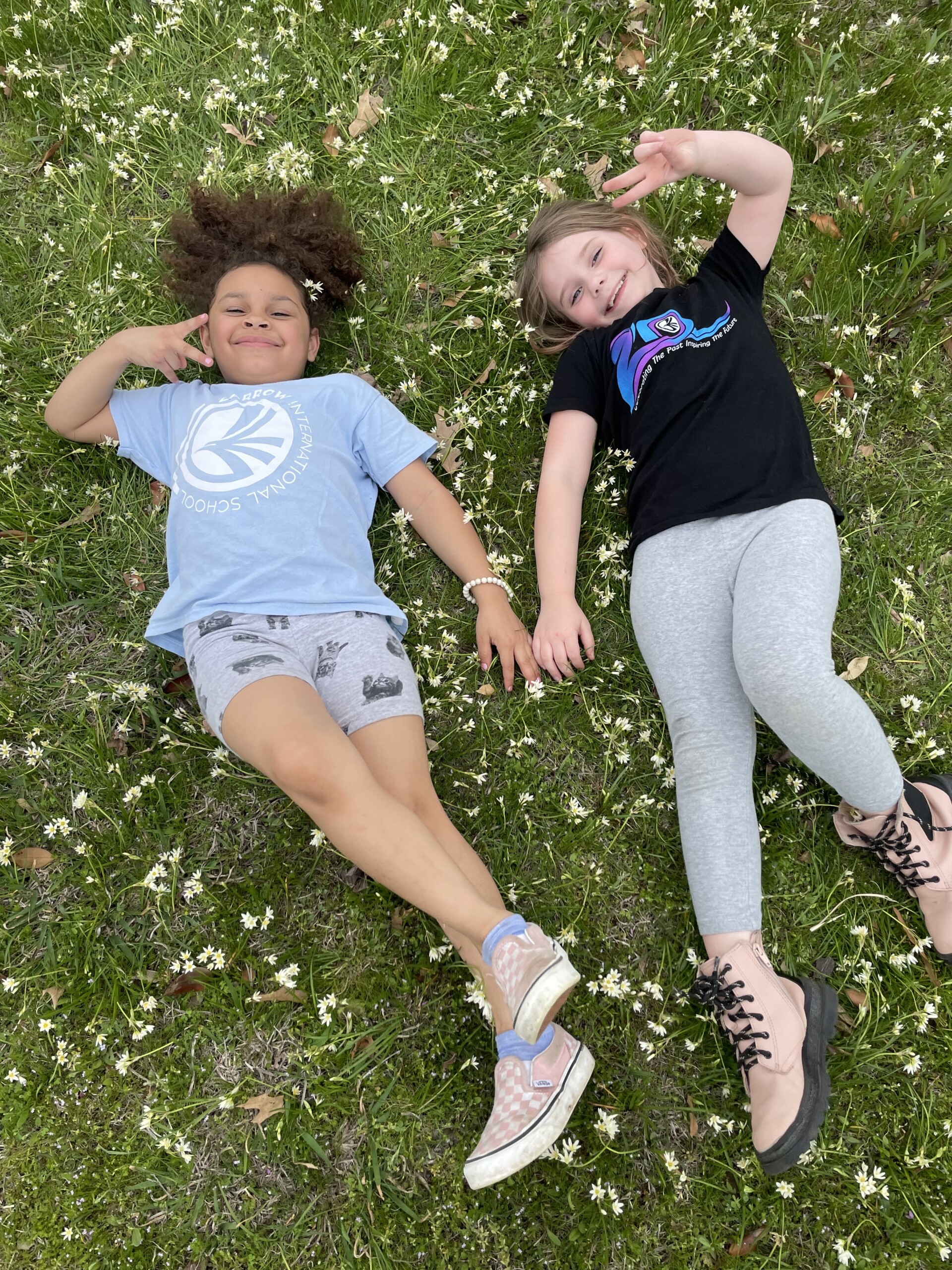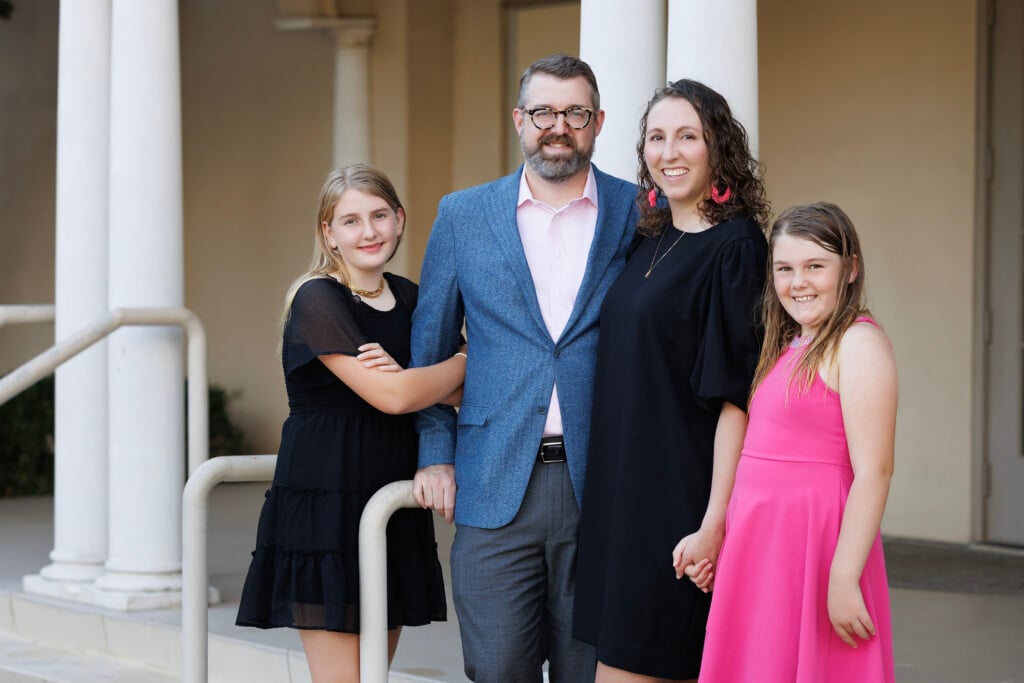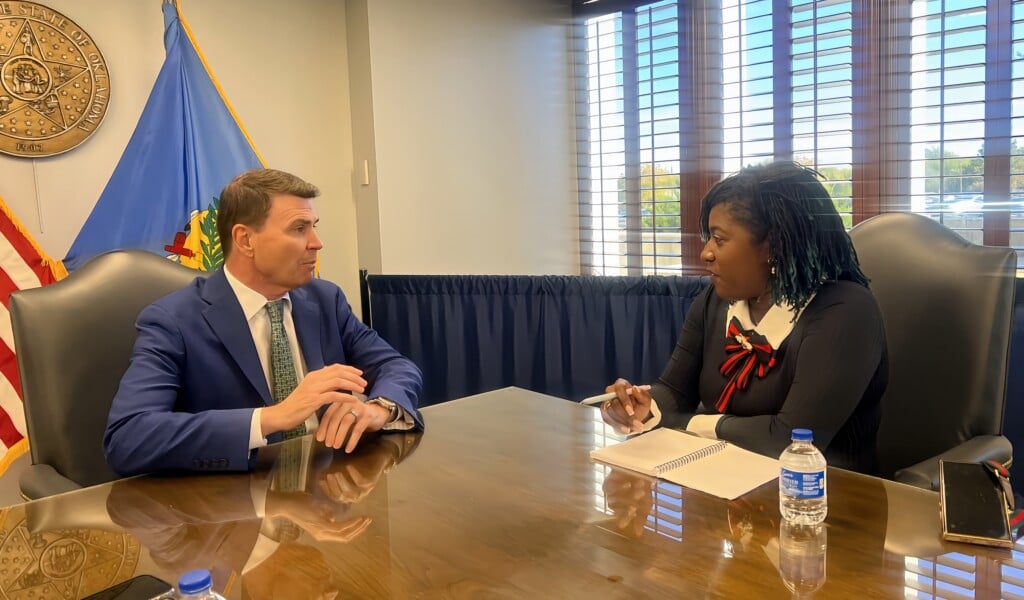Flowers, Trees, Grass and Bees: Nature as Teacher

For a lot of kids, recess is the best part of the school day.
And for many of those kids, 20 minutes of sunshine is about all they can expect. That’s just not enough as far as some parents and educators are concerned.
A growing movement to move indoor education outdoors is taking hold across the country, including in Tulsa. Connecting to the earth by seeking nature and being outdoors is a priority as important as math and reading to some parents.
Global Gardens
In Tulsa, the Global Gardens program has been part of the community for more than 16 years. Its mission to empower students through hands-on science and peace education can be seen at several Title 1 Tulsa Public Schools sites. Each participating school has a dedicated thriving, full garden space for kids to explore and learn. During the school year, kids see firsthand the life cycle of a garden, from seed to harvest.
“Being in the garden has a big impact on kids. It can be very calming for kids who are overstimulated in the classroom and engaging for kids who are bored in the classroom,” said Maryann Donahue, executive director of Global Gardens.
Expanding the walls of the classroom is something Donahue says has shown real benefits to kids.
“For kids for whom the rules and requirements of a classroom setting don’t match up with the best ways for them to learn, the garden can be a really engaging space,” she said. “The hands-on aspect of it creates a level of engagement that is beyond what their typical day in the classroom might be.”
Donahue has many stories of ways the garden spaces have piqued curiosity, created science-minded kids and developed empathy in children. Recently a teacher shared a story with her about a child who found an ant in the classroom. The student cared for that little ant, and the entire classroom went out to the garden to release the ant among the herbs in the garden.
Focusing on nature and the living things around them is part of the Global Gardens mission.
“There’s something about being in a garden or an outdoor space – feeling the sun on you, smelling the smells of the garden,” Donahue said.
Learning in such a natural and beautiful space creates openings for drawing kids’ attention to what’s around them – the insects, animals and other factors that make contributions to the garden and the world around us. It also creates opportunities for empathy, Donahue said.
Under the Canopy
Margaritte Arthrell-Knezek wants to see children outdoors. She wants them to see them gardening, caring for animals, nature crafting and learning outside. In 2016 she founded Under the Canopy to give kids more nature education opportunities. What started as after-school classes and workshops has grown considerably. Under the Canopy was accepted as a Tulsa Public Schools charter school (pre-K to 5th grade) and will open in the fall of 2025.
The idea for this nature-based public Waldorf-style school is to use nature to enhance academic learning and to connect students to each other and their community through active engagement with their natural environment. It’s also important to Arthrell-Knezek that the focus be on accessible nature with an appreciation and understanding of what’s right outside the window.
So, what does that look like? Students at Under the Canopy will have a brisk morning walk before they begin their academic day. And students will take part in an immersive day-long nature experience including outdoor education and a school-wide community garden.
“I believe one 20-minute recess a day after lunch, what the standard public school offers, is not enough outdoors time. I often see recess being taken away as an incentive for good behavior. I also think this is fundamentally wrong because often the children acting up are the ones that need the outdoor time the most to get out their energy,” Arthrell-Knezek said.
She has seen increased interest in an education that’s more than the four walls of a classroom, as parents have contacted her about Under the Canopy for their children.
“Parents want nature education for their children,” she said. “During the pandemic people seemed to become more aware of the importance of being outdoors, and the program has gained a lot of momentum.”
The idea of spending more time outdoors would get two thumbs up by most kids and parents, even if they don’t know the research behind the benefits. Arthrell-Knezek said the physical and mental health benefits of spending time outside are immeasurable.
“This is especially true for children having adverse experiences. The research points to nature playing a vital role in creating positive and therapeutic interventions,” she said.
For parents seeking a nature education for their children, it’s about so many of these things – outdoor play, fresh air, exploration and interacting with the natural world on a consistent basis.
“We are so excited to share our new education model with the children of Tulsa,” Arthrell-Knezek said.
Information and enrollment information for Under the Canopy can be found on the school’s website, underthecanopy.org
 Natalie Mikles is a mom of three. She writes about food, sharing recipes for busy families and picky eaters. She has been recognized for her food columns as well as features on families and issues affecting local children. She loves pizza and movie nights with her family.
Natalie Mikles is a mom of three. She writes about food, sharing recipes for busy families and picky eaters. She has been recognized for her food columns as well as features on families and issues affecting local children. She loves pizza and movie nights with her family.





